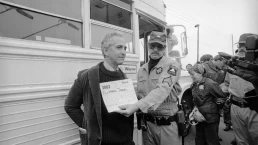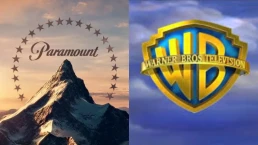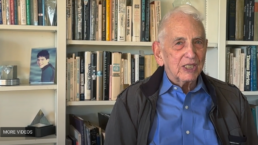Outside a federal court in Boston, Ellsberg was asked if he was worried about going to jail. His response: “Wouldn’t you go to prison to help end this war?”
By Christian Appy
I have been a history professor at the University of Massachusetts, Amherst for twenty years. On May 7, I was one of a handful of faculty members arrested for standing in support of hundreds of students who were engaged in nonviolent protest of university complicity in the ongoing slaughter and suffering of Palestinians in Gaza. They want the school to divest from companies profiting from the carnage.

In the hours before UMass Chancellor Javier Reyes called in more than a hundred state police in riot gear to arrest anyone who did not disperse from the area in and around a small encampment, I wrestled with questions of conscience and practicality. Am I willing to be arrested? Is it the right thing to do? Could it make a difference? Would there be negative consequences for my career?
In the end, it was not a hard choice. I simply asked myself, “what would Daniel Ellsberg do?”
In 1971, Ellsberg released to the press and public the Pentagon Papers–a 7000-page classified history of the Vietnam War exposing decades of government lies about its causes and conduct. For that act of moral courage, he sabotaged his career and faced a possible 115-year sentence. Outside a federal court in Boston, Ellsberg was asked if he was worried about going to jail. His response: “Wouldn’t you go to prison to help end this war?”
Ellsberg asked himself that very question in 1969 when he met some of the 3,250 young men who went to prison rather than submit to the Vietnam War draft. “It was the first time that I had come face-to-face with Americans willing to go to prison for refusing to collaborate in an unjust war.” Their bravery inspired his own. As he often said, “courage is contagious.”
I’m very proud that UMass acquired Ellsberg’s papers in 2019, funded many projects to promote his legacy, and in 2023 awarded him an honorary degree. Those commitments are one reason why I was so shocked and grieved by the UMass administration’s decision to crackdown on peaceful antiwar protest at an encampment that had been in place only seven hours. It was a betrayal not only of Ellsberg’s example, but the university’s own bold motto, “Be Revolutionary.”
The police arrest of faculty came first, and we were treated with reasonable restraint. However, as many videos and personal testimonies demonstrate, there was widespread use of excessive force against students. One of my graduate students was thrown face down to the ground, with a knee pressed so hard in his back that he struggled to breathe. He was zip-cuffed so tightly his hands soon began to swell. He was then put in the back of a small windowless police van for several hours before being driven to the Mullins Center arena to join many of the 134 arrested protestors. His experience was not exceptional; some arrestees were subjected to greater violence. At the arena, many were held all night (still zip-cuffed), denied food or water, and were only allowed to use the bathroom after hours of pleading, if at all.
The Chancellor and his supporters, including Governor Maura Healey, have defended the mass arrests on the grounds that they were necessary to ensure safety. Yet no one’s security was at risk until the police were ordered onto campus. Nor should we take seriously the Chancellor’s claim that he had negotiated in good faith with a delegation of protestors prior to the arrests. As a detailed report of the meeting makes clear, he told the students repeatedly that he would not even consider discussing their demands until the encampment was taken down. Moreover, although the Chancellor insisted that calling the police was an “absolute last resort,” they were massing on campus even as the “negotiations” were just beginning.
What would Daniel Ellsberg do? We can’t know with complete certainty because he died last June at the age of 92. We do know that in the 50 years after he released the Pentagon Papers, he devoted his life to principled nonviolent activism and was arrested more than 80 times for acts of civil disobedience in the struggle for peace and nuclear disarmament. And when I wrote his widow, Patricia, to tell her of my arrest, she wrote back these words, used with her permission: “I’m sure Dan would have advised you to get arrested. In some ways, I’m glad he is no longer here because he would have been anguished over the horror perpetrated by Israel on Gaza and probably arrested many times in protest.” I am also quite sure he would have been, as I am, deeply inspired by the passion and commitment of this generation of young activists.
Christian Appy is the Director of the Ellsberg Initiative for Peace and Democracy and author of three books about the Vietnam War. He is now writing a biography of Daniel Ellsberg.
Recent Posts
States Can Block the Paramount-Warner Deal
March 3, 2026
Take Action Now But thanks to some clever maneuvering, they are already running out of time.By David Dayen, The American Prospect What started as…
Congress, Do Your Job and End This Illegal War of Aggression By The U.S. and Israel
March 2, 2026
Take Action Now Congress must assert its Constitutional authority over matters of war and peace against an out-of-control, rogue president and…
Daniel Ellsberg Speaks to Us as the War on Iran Continues
March 2, 2026
Take Action Now Ellsberg’s voice is back via a compelling new book. “Truth and Consequence,” being published this week, provides readers with his…
The Supreme Court Hears a Line 5 Oil Pipeline Case With High Stakes for Treaty Rights
March 2, 2026
Take Action Now The Straits of Mackinac aren’t just ecologically critical — they’re the center of the Anishinaabe creation story.By…




